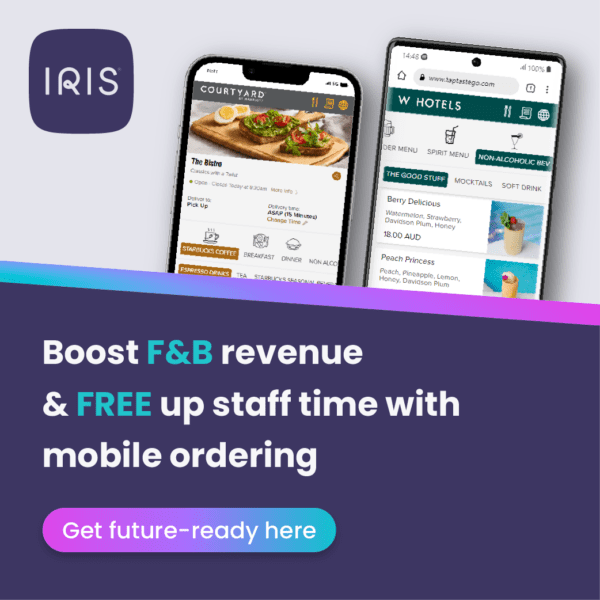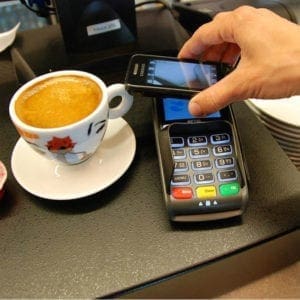Drew Bowering is Director of Market Management for Australia at Expedia’s Lodging Partner Services team.
Understanding how travellers behave is critical to our business, and this insight ensures our hotel partners can connect and engage with travellers today and in the future.
The $1.4 trillion global travel market is growing rapidly, is highly fragmented and highly competitive.
According to a recently released Phocuswright White Paper[1], just under three quarters of Australian hotel shoppers booked their travel online via OTAs, compared with just 21% who went direct to the hotel. So what differentiates an OTA booker versus someone booking direct with the hotel?
Everyone knows (or thinks they know) a lot about OTA consumers: it’s regularly acknowledged that they’re value-conscious, brand-agnostic shoppers who spend time searching online for the perfect hotel or holiday. Those things are true, and when it comes to attracting them to your hotel, the Expedia group can offer a little more insight.
OTA customers are tech savvy
Mobile bookings are consistently on the rise, with Asia Pacific users being the most mobile savvy. Overall, traffic to Expedia group sites via mobile devices accounts for ~40%, with more than 1 in 4 room nights booked on a mobile device[2].
In APAC, mobile bookings are even more common. One in three transactions are booked on a mobile device and nearly half (45%) of site traffic visits come through mobile platforms[3]. While one in four Australians are booking via mobile, a staggering 60% of the online travel market in China comes through mobile platforms[1].
We also know that most people don’t shop just on the phone, they shop across devices and our data reveals that over half of all transactions have touched more than one device prior to booking4. Multi-device ownership is becoming the norm. Consumers are constantly connected to their phone, computer and tablet all at the same time, and their purchasing habits are reflecting this.
Expedia understands the need for hoteliers to target these tech-savvy travellers, and we are continuing to invest in this space (over AUD $1.3bn5) to ensure great mobile experiences for consumers and for our hotel partners to reach travellers in the way that they want to shop. As of December 31, 2015, Expedia mobile apps have been downloaded more than 130 million times, capturing a valuable digital audience who repeat business at about twice the rate of the average consumer6.
OTA consumers want to connect in real-time
In response to the popularity of OTA customers increasingly connecting in real-time, Expedia offers Real-Time Feedback, a tool that connects with guests after they arrive at a hotel via an email or mobile app asking three simple questions related to their hotel experience. This tool enables hoteliers to receive feedback from guests staying at the property so they can immediately address any issues to enhance the guest experience. To date, we have received 8.3 mil feedback responses since inception and hoteliers using Real-Time Feedback also see higher post-stay review scores of up to 10%.
OTA customers value convenience when shopping for their travel
Unlike dedicated single-supplier websites, OTAs give travellers the ability to efficiently compare a wide range of products in a single place. An OTA like Expedia enables comparison shopping within a particular segment (air, hotel or car rental), allowing travellers to save time and money when they combine multiple products. In Australia, three out of four travellers shopped for both flights as well as accommodation on OTA websites showing that, increasingly, travellers prefer booking their travel in one place1.
In fact, Expedia’s packages have yielded significant results for Australia hoteliers. The Expedia group data for the first half of 2016 demonstrated a 50% increase in international demand for Australian packages, compared with the same period last year. In addition to providing ease of booking and convenience, package bookings are highly valuable to hoteliers as package travellers tend to stay longer, book longer in advance and have lower cancellation rates – factors which have a direct impact on hoteliers’ bottom lines.
OTA customers skew younger
Over a third of OTA customers (36%) are between the ages of 25-39 years – a blend of Generation X (those born between the 60s and 80s) and millennials (those who reached adulthood around the year 2000) 7. But what do we know about these customers?
- Travellers aged 25-34 are the generation most on the go, with 82% of this age group travelling for leisure in 2015; the second highest-travelling group are 18-24 year-olds at 76% for leisure
- Millennials now represent almost four in 10 leisure travellers. They are also the group who travel internationally more than any other age group, with half of 18-34 year-olds travelling overseas (compared with 39% of 25-54 year-olds and 20% of the 55+ bracket)7
- More than a third of 18-34 year olds (38%) typically use an OTA to book a hotel, while less than one fifth (18%) book on a hotel website. More than a third of 35-54 year olds also typically book their hotel on an OTA versus a quarter (26%) who book on a hotel website7.
OTA customers come from the four corners of the world
Expedia customers come from more than 75 countries worldwide including three of the fastest-growing sources of international travellers8 – China, USA, and UK. For the Australian inbound market, overall demand on Expedia group sites grew in the second quarter of this year, with the largest international markets were the USA, New Zealand, United Kingdom, and Singapore. The fastest growing were South Korea, Singapore, Japan, USA, and Hong Kong.
These insights on OTA customers will help hoteliers better identify the behavioural patterns of current and prospective travellers, and are essential to understanding the challenges that lie ahead in a rapidly-shifting market. With this knowledge, hoteliers will be able to maximise future opportunities that will emerge.
About the author
Drew Bowering leads Expedia Lodging Partner Services in Australia, managing a team of professionals throughout the country to establish and develop hotel partner relationships and help maximise their exposure to Expedia’s 200+ travel booking websites.
Drew has worked for the Expedia group for more than seven years, holding a variety of managerial roles across the business from the Global Partner Group to Market Management in the UK, Pacific Islands, America and Australia.
Before joining Expedia in 2008, Drew completed a six-year stint at TUI Group, the world’s leading integrated leisure and tourism provider.
Drew holds a Bachelor of Science Degree in Mathematics from Loughborough University in the UK, where he grew up. He is currently raising his young family in Australia.
[1] Phocuswright White Paper- Channel Surfing: Where Consumers Shop for Travel Online 2016 [2] Based on global mobile bookings in Q4 2015 [3] Based on Hotels.com data for Q3 2012 – Q3 20154 Based on brand Expedia transactions in December 2015
5 Figure as of last 12 months ending June 2016
6 Based on brand Expedia cumulative data as of 12/31/15
7 Phoscuswright U.S. Consumer Travel Report 2016. 8th Edition
8 http://media.unwto.org/press-release/2016-01-18/international-tourist-arrivals-4-reach-record-12-billion-2015














